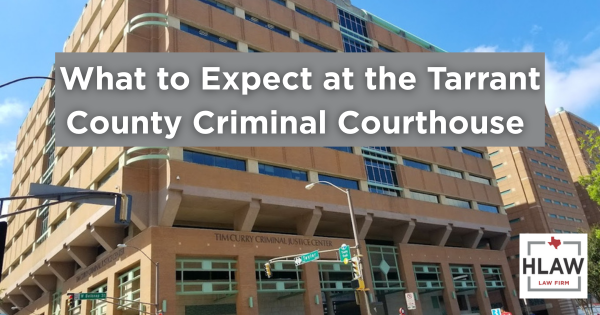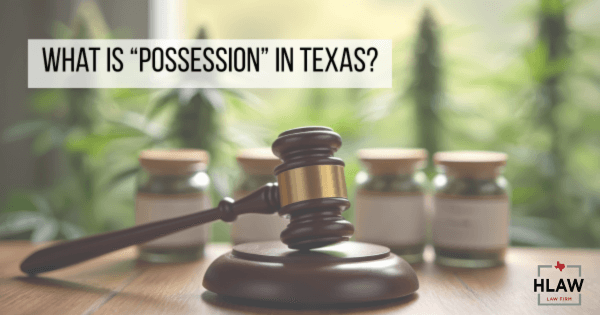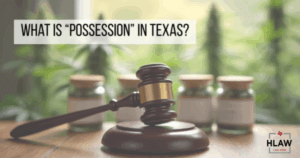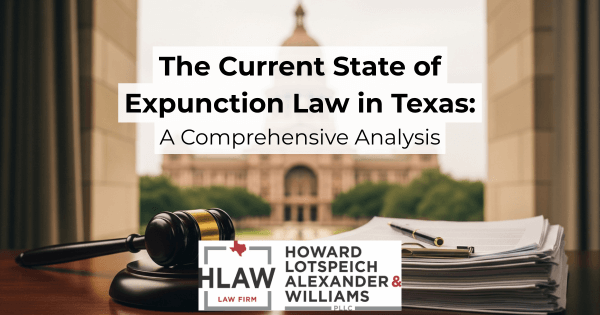
Understanding expunction law in Texas, a critical legal mechanism for clearing criminal history records and offering individuals a fresh start.
Introduction to Texas Expunction Law
Expunction in Texas represents a critical legal mechanism designed to provide individuals with a fresh start by clearing specific criminal history records. This process is distinct from other forms of record management and is governed by precise statutory frameworks that have recently undergone significant modernization.
Defining Expunction: Purpose and Legal Effect
Expunction is a judicial process in Texas that aims to permanently remove records of arrest, charge, or conviction from an individual’s criminal history. The fundamental purpose of expunction is to render the expunged event as if it never occurred. This profound legal fiction implies a significant societal commitment to rehabilitation and offering second chances, particularly for individuals who were wrongfully accused or whose minor infractions did not lead to a conviction. The intent extends beyond mere privacy; it is about restoring a person’s legal identity and opportunities, allowing them to move forward without the burden of a past record.
The practical effect of an expunction is the complete removal and destruction of files containing references to the crime, arrest, and punishment from public records, including those held by police and prosecution agencies. Once a case is expunged, it is effectively erased from public view, enabling the individual to legally deny the occurrence of the expunged event on most applications, such as those for employment, housing, or military service. This ability to truthfully state that the event did not occur is a cornerstone of the expunction’s rehabilitative power, preventing past incidents from creating lifelong barriers to social and economic integration.
Expunction vs. Nondisclosure: Key Distinctions and Implications
While both expunction and nondisclosure orders serve to manage criminal records and require a judge’s order, they differ significantly in their scope and the degree of record clearance they provide. Understanding these distinctions is crucial for individuals seeking to address their criminal history.
Expunction results in the complete removal or destruction of criminal records. Once an expunction order is granted, the records are inaccessible to the public, law enforcement, and most government agencies. This process allows the individual to legally deny the event occurred, creating a comprehensive erasure from their public criminal history.
Nondisclosure (Record Sealing), conversely, seals the record, restricting public access but allowing law enforcement, licensing agencies, and certain government entities to still view the information. This option is typically available for individuals who have successfully completed deferred adjudication for certain offenses. The clear differentiation between these two remedies reflects a nuanced legislative intent to balance individual rehabilitation with public safety and regulatory oversight. The state recognizes that not all non-convictions warrant complete erasure, particularly for offenses where deferred adjudication was granted, indicating a level of culpability or state intervention that necessitates continued governmental access for internal purposes, such as future criminal investigations or professional licensing checks. This tiered approach to record clearance ensures the level of relief granted is proportional to the nature of the original incident and its disposition.
The table below summarizes the core differences between expunction and nondisclosure:
| Feature | Expunction | Nondisclosure |
| Definition | Complete erasure of criminal records | Sealing of criminal records |
| Effect on Record | “As if it never occurred” | Hidden from public view |
| Who Can See | Public, most government agencies (cannot see) | Law enforcement, licensing agencies, certain government entities (can see) |
| Eligibility Basis | Acquittal, dismissal, no charges filed, pardon | Successful deferred adjudication |
| Legal Denial | Yes, can legally deny | Yes, can legally deny to public/employers |
Governing Statutes: Texas Code of Criminal Procedure Chapter 55 and Chapter 55A, Government Code Chapter 411, Family Code Chapter 58
The legal framework for expunction in Texas has historically been primarily governed by the Texas Code of Criminal Procedure, Chapter 55. This chapter meticulously outlined the eligibility criteria, the rights of individuals seeking expunction, and the specific procedures that petitioners were required to follow.
However, a crucial legislative update,House Bill 4504 (H.B. 4504), enacted by the 88th Legislature, R.S., has fundamentally restructured Texas expunction law. Effective January 1, 2025, Chapter 55 was repealed and replaced by a new comprehensive chapter: Chapter 55A. Expunction of Criminal Records. This transition signifies a legislative intent to not just amend, but to modernize and streamline the expunction process, addressing past complexities and aiming for clearer guidelines and potentially broader access to relief. The stated goals of HB 4504, such as “simplifying and modernizing” the criminal procedure code, underscore that this is a comprehensive re-codification rather than a minor adjustment. The impact of this change is expected to be felt across all aspects of expunction law, from eligibility to procedure, necessitating careful attention to the evolving legal landscape.
Beyond expunction, nondisclosure orders are governed by the Texas Government Code, Chapter 411, Subchapter E-1. For the sealing of juvenile records, the relevant statute is the Texas Family Code, Chapter 58, specifically beginning at Section 58.003. These separate statutory frameworks highlight the distinct legal considerations and processes for different types of record clearance.
Eligibility Criteria for Expunction
Determining eligibility is the foundational step in the expunction process, as not all criminal records qualify for this comprehensive relief. The criteria are stringent and depend heavily on the disposition of the case and the nature of the offense.
General Conditions for Expunction
Expunction is generally available for arrests that did not lead to a conviction. This consistent emphasis on non-conviction scenarios across various legal resources underscores a foundational legal philosophy: an arrest alone does not equate to guilt, and if the legal process does not culminate in a finding of guilt, the state provides a mechanism to erase the arrest’s public footprint. This protects individuals from the collateral consequences of an arrest that did not lead to a conviction, such as employment discrimination or housing denials.
Key scenarios that typically qualify for expunction include:
- Arrested but not formally charged: If no criminal charges were filed against the person after an arrest.
- Acquittal: The person was tried for the offense and acquitted by the trial court.
- Dismissal: Charges against the person were dismissed or quashed, often due to reasons such as lack of probable cause, false information, or a mistake.
- Pardon: The person was found guilty and subsequently pardoned, whether the pardon was granted on the basis of actual innocence or for other reasons.
- Pretrial Diversion: Successful completion of a pretrial diversion program can also lead to expunction eligibility.
Specific Offense Eligibility
While the general rule for expunction centers on non-convictions, Texas law includes specific provisions for certain offenses, reflecting a legislative recognition of the disproportionate impact of minor or non-culpable records on individuals’ lives.
- Class C Misdemeanors: A notable exception to the general rule that deferred adjudication leads only to nondisclosure is for Class C misdemeanors. Expunction is permitted for Class C misdemeanors where deferred adjudication was successfully completed. This indicates that the state views these minor offenses as sufficiently low-level that even a deferred adjudication should not leave a permanent public mark.
- DWI Offenses: Generally, expunction is not available for DWI convictions. However, if DWI charges were dismissed or the individual was acquitted, expunction may be possible. For first-time DWI offenders, nondisclosure might be an available option depending on the specific details of the case.
- Identity Theft: Individuals whose identity was used by someone else during an arrest are specifically eligible for expunction, recognizing the injustice of a record for a crime they did not commit.
- Truancy/Sexting (Juvenile/Minor Offenses): Recent legislative changes have expanded expunction eligibility for certain juvenile and minor offenses. For example, new laws (such as SB144, SB1489, SB407 mentioned in ) have made expunction possible for single truancy offenses (if the individual is 18 or older and meets conditions like obtaining a high school diploma or GED) and single sexting convictions (if 17 or older).
- Multiple Violations for First-Time Minor Alcohol Offenders: Significant recent legislation, Texas Senate Bill 1725 (effective September 1, 2023), allows for the expunction of multiple violations arising from a single incident for first-time minor alcohol offenders. This change addresses previous issues where prosecutors often “stacked” charges, preventing comprehensive record clearance for minor incidents. These specific provisions demonstrate a policy shift towards mitigating the long-term consequences of events where the individual’s culpability was minimal, non-existent, or related to youthful indiscretion, aiming to prevent these minor incidents from creating lifelong barriers.
Mandatory Waiting Periods
For many expunction scenarios, specific waiting periods must elapse before a petition can be filed. The existence of these waiting periods, even when no charges are filed, suggests a pragmatic approach by the state: it allows time to determine if charges will be brought or if further investigation is warranted, acting as a safeguard against premature expunction.
- For offenses where no charges were filed, minimum waiting periods apply from the date of arrest:
- Class C misdemeanors: 180 days.
- Class A and B misdemeanors: 1 year.
- Felonies: 3 years.
- For cases where charges were brought and later dismissed, the statute of limitations must have expired for all crimes associated with the arrest (not just the charged offenses) before expunction can be applied for, unless the dismissal was due to lack of probable cause or actual innocence.
- Immediate Eligibility: In contrast, if the case was dismissed due to lack of probable cause or actual innocence, or if the person was acquitted by a jury, there is generally no waiting period. This immediate eligibility indicates a strong legal and ethical imperative to rectify wrongful accusations without delay, recognizing the immediate and severe impact of an unjust arrest record.
The table below provides a concise summary of the mandatory waiting periods:
| Scenario | Waiting Period |
| No Charges Filed (Class C Misdemeanor) | 180 days from arrest |
| No Charges Filed (Class A/B Misdemeanor) | 1 year from arrest |
| No Charges Filed (Felony) | 3 years from arrest |
| Acquittal/Actual Innocence | No waiting period |
| Dismissal (other reasons) | Until statute of limitations expires |
Disqualifying Factors and Exceptions
Despite the broad intent of expunction, strict disqualifying factors exist, underscoring the limited nature of this remedy and the state’s paramount interest in maintaining records for public safety and accountability when guilt is established or prosecution is ongoing.
- Convictions: Generally, if an individual was convicted of the offense, they are not eligible for expunction. The only exceptions are a pardon or a Class C misdemeanor that resulted in successful deferred adjudication. This highlights that expunction is an exceptional remedy primarily for non-convictions, not a general pardon for all past offenses.
- Pending Charges: If there are currently pending charges against the individual stemming from the arrest they seek to expunge, they are not eligible for expunction.
- Criminal Episode: A court may not order expunction if the person was acquitted of an offense, but that offense arose out of a criminal episode for which they were convicted or remain subject to prosecution. This limitation prevents individuals from selectively erasing parts of a connected criminal history, ensuring a holistic view for justice agencies where genuine culpability exists. However, if multiple charges from the same arrest did not arise from the same criminal episode, expunction for the non-convicted charge may still be possible.
- Deferred Adjudication (Non-Class C): For Class A and B misdemeanors or felonies, successful completion of deferred adjudication typically makes an individual eligible only for an order of nondisclosure, not expunction.
Special Circumstances (Juvenile Records)
Texas law provides distinct and often more lenient provisions for juvenile record sealing, reflecting a legal philosophy focused on rehabilitation and preventing youthful mistakes from permanently hindering adult opportunities.
Juvenile records can be sealed under Texas Family Code, Chapter 58. The state may automatically restrict record access for individuals who turn 17, provided they were not violent or serial offenders and were not tried as adults. Additionally, juveniles and their representatives can petition the state to permanently seal criminal records. For felony offenses committed as a juvenile, an offender may qualify for record sealing if they are 19 or older, were not tried as an adult, and did not obtain a conviction for an additional felony after turning 17. Recent legislative changes effective in 2025 may even lead to automatic sealing of juvenile records for minor offenses without requiring a lengthy application process. These provisions underscore a recognition that minors’ actions should be treated differently from adults’, aiming to give young people a genuine “fresh start” by minimizing the long-term impact of their early interactions with the justice system.
The Expunction Process: Step-by-Step Guide
Navigating the expunction process in Texas requires adherence to specific procedural steps, from initial eligibility assessment to post-order record removal. The complexity of these steps often necessitates professional legal assistance.
Initial Assessment and Eligibility Confirmation
Before initiating the expunction process, it is paramount for an individual to confirm their eligibility and ascertain that any applicable waiting periods have passed. The repeated emphasis on legal consultation and the inherent complexity of eligibility assessment suggest that while the law aims to provide a fresh start, the practical hurdles to achieving it are significant, potentially creating a barrier to access for unrepresented individuals. Legal professionals are strongly recommended to confirm eligibility under the current Texas laws, as the criteria can be nuanced and the process unforgiving. For specific case information, individuals can contact the District Attorney’s office or Municipal Courts.
Preparing the Petition and Required Documents
The expunction process is a civil matter that demands specific petitions and orders containing precise legal language. The lack of readily available “fill-in-the-blank” official forms for expunction, coupled with the strict requirement for precise legal language, indicates a deliberate design that favors legal expertise, potentially hindering pro se applicants. If documents are inaccurate or incomplete, a judge will deny the expunction.
Typically, petitioners will need to prepare three core documents:
- A Petition for Expunction.
- An Order Setting Hearing.
- An Agreed Order of Expunction.
While Texas generally provides few official legal forms, petitioners may draft custom forms using templates or drafting guides. Resources such as TexasLawHelp.org and the Office of Court Administration offer sample forms. Additionally, gathering all necessary documentation, including arrest records, court case numbers, and proof of dismissal or acquittal, is essential for a complete petition.
Filing Procedures and Associated Fees
Once the necessary documents are prepared, the petition and order setting hearing must be filed with the appropriate District Clerk’s office, such as the Harris County District Clerk. Filing fees apply, with a base fee of approximately $227 in some counties, plus additional fees for serving each law enforcement agency listed in the petition. Payment methods may be restricted, often excluding personal checks.
Significant legislative changes introduced by C.S.S.B. 1667, effective September 1, 2025, aim to streamline the expunction process and reduce financial burdens. Electronic service of petitions and notices to agencies will become free to the filer, and state and local agencies will be required to accept electronic service whenever possible. For cases where electronic service is not available, a standardized fee of $25 per entity will be charged. This shift towards electronic processing and standardized fees reflects a proactive effort by the state to modernize the expunction process, recognizing past administrative bottlenecks and aiming for improved efficiency and predictability in costs.
Notifying Agencies and Entities
The expunction petition must meticulously list all law enforcement agencies, courts, prosecuting attorneys, and other governmental entities that may possess records of the arrest. It is critically important to include all necessary parties, as failing to do so may result in records remaining publicly accessible even after an expunction order is granted, undermining the purpose of the expunction. The court is responsible for sending a copy of the petition and notice of hearing to each listed entity.
C.S.S.B. 1667, effective September 1, 2025, further streamlines this notification process. Petitions will be prohibited from listing any state or local agency more than once or including multiple contacts or addresses for different divisions within the same agency, thereby reducing redundancy. Additionally, district clerks will be required to maintain a list of agencies and their email addresses on their website to facilitate accurate notification. This legislative effort to standardize agency listings and promote electronic notification demonstrates an understanding that administrative inefficiencies in record dissemination can undermine the effectiveness of expunction orders, and that a centralized, streamlined approach is necessary for true record clearance.
Court Hearings and Judicial Review
Upon filing, the court will set a hearing on the expunction petition, typically not earlier than 30 days after the filing date. Petitioners may need to attend this court hearing, especially if the expunction is contested by an agency or if the judge requires further confirmation of eligibility.
A key procedural step involves the “Agreed Order of Expunction.” This document must be prepared by the petitioner and signed by all listed law enforcement agencies before it is submitted to the court for the judge’s final approval. The requirement for a court hearing and the need for agencies to sign an “Agreed Order” before judicial approval indicate that expunction, despite its “fresh start” purpose, is not a mere formality. Instead, it involves a judicial review that balances individual rights with institutional oversight, ensuring that expunction is granted only when all legal and procedural requirements are met and the state’s interests are not unduly compromised.
Post-Order Procedures and Timelines for Record Removal
Once the judge signs the expunction order, the court is responsible for circulating it to all relevant agencies. However, the process does not conclude immediately. It typically takes a minimum of three months for an expunction order to become final, and often longer due to administrative backlogs, particularly with the Texas Department of Public Safety (DPS), which serves as the central clearinghouse for criminal records. The historical challenge of slow processing times and limited record retention for expunction orders highlights a systemic bottleneck that previously undermined the practical benefit of expunction.
To address these issues, recent changes introduced by C.S.S.B. 1667 (effective September 1, 2025) aim to improve efficiency. Clerks will be allowed to retain expunction orders indefinitely, ensuring petitioners can obtain copies if needed, thereby addressing the previous one-year retention limit that often forced individuals to restart the process if they lost their original order. Additionally, the bill aims for faster processing times through the implementation of a more efficient digital system. These legislative actions demonstrate a commitment to making the expunction process more practically viable and sustainable for individuals, moving beyond just defining the right to expunction to actively facilitating its effective implementation.
Legal Effects and Practical Implications of Expunction
The successful expunction of a criminal record carries significant legal and practical implications, fundamentally altering an individual’s public criminal history and their ability to move forward.
Impact on Background Checks (Public vs. Governmental Access)
Once a record is expunged, it should not appear in background checks conducted by private entities such as employers, landlords, or financial institutions. The judge’s order mandates all governmental agencies to completely erase the record for that specific allegation. This is a powerful aspect of expunction, designed to remove barriers to employment, housing, and financial stability.
However, it is important to note a critical limitation: some federal agencies, such as the Department of Homeland Security, may still retain knowledge of the expunged crime. This distinction between state-level expunction and federal access reveals a tension between individual rehabilitation and the state’s need for comprehensive information, particularly at the federal level. State expunction orders do not bind federal agencies, creating a persistent “shadow record” for certain purposes (e.g., immigration, federal employment). This is a significant limitation on the “as if it never occurred” principle and a crucial point for individuals to understand when considering federal applications.
Right to Deny Arrest and Expunged Offenses
A significant benefit of expunction is the legal right it grants an individual to deny that they were ever arrested, charged, prosecuted, or jailed for the expunged offense. This ability to truthfully deny the event is a cornerstone of expunction’s rehabilitative power. This denial can be made on various applications, including those for employment, school, or military service, and even under oath in civil proceedings.
There is one key exception: in a criminal proceeding, a person must acknowledge the expunction order by stating that the matter has been expunged. This exception reflects the state’s overriding interest in maintaining accurate internal records for ongoing justice administration. The court system needs to know an individual’s full history when administering justice for new offenses, even if past records are publicly expunged. This balance demonstrates the law’s attempt to provide a fresh start without compromising the integrity of the criminal justice system.
The expunction process is highly complex, involving specific legal requirements, forms, and procedures. Mistakes in eligibility determination, petition preparation, or agency notification can lead to the denial of the expunction.
Critically, a denied petition can result in the loss of filing fees and, more importantly, the loss of the right to expunge that specific case in the future, even if it later becomes eligible. This is often referred to as the “one shot” rule. The “one shot” rule imposes a high penalty for procedural errors, reinforcing the practical necessity of legal expertise and potentially creating an inequitable system where access to justice depends on a petitioner’s ability to navigate complex legal minutiae flawlessly. Given these high stakes,legal professionals are strongly recommended to ensure proper eligibility assessment, accurate documentation, correct filing, and comprehensive agency notification, significantly increasing the chances of a favorable outcome.
Recent Legislative Changes and Future Outlook (Effective 2025)
Texas expunction law is undergoing a significant transformation, with key legislative changes set to take effect in 2025. These updates aim to modernize the process, expand eligibility, and improve efficiency, reflecting an evolving societal understanding of the long-term impact of criminal records.
Overview of House Bill 4504 and Chapter 55A
House Bill 4504 (HB 4504) represents a fundamental revision of the Texas Code of Criminal Procedure, with substantial changes impacting the expunction of criminal records, effective January 1, 2025. This bill repeals the old Chapter 55 and replaces it entirely with the new Chapter 55A. Expunction of Criminal Records. This legislative shift towards expanded eligibility and automatic expungement, particularly for dismissed cases and acquittals, signals a policy pivot towards proactively clearing records for individuals who were not convicted, reducing the burden on petitioners and streamlining the “fresh start” process.
Key updates introduced by HB 4504 and Chapter 55A include:
- Expanded Eligibility: More misdemeanor offenses are now eligible for expungement. Additionally, certain non-violent felony offenses may now qualify for record sealing under specific conditions.
- Automatic Expungement: A significant new development is the introduction of automatic expungement for some dismissed charges and cases resulting in acquittal, meaning these records will be removed from an individual’s history without requiring a formal petition. This is a major departure from the previous system where a petition was always required, indicating a legislative recognition that for clear-cut non-convictions, the state should take the initiative to clear records.
- Reduced Waiting Periods: In some cases, the waiting periods for expungement applications have been reduced, although specific details on which waiting periods are affected are not fully elaborated in the available information.
- Faster Processing Times: The Texas court system has implemented a more efficient digital processing system, aiming to reduce the time it takes for an expungement request to be approved.
Impact of C.S.S.B. 1667 (Effective September 1, 2025)
Complementing HB 4504, C.S.S.B. 1667, effective September 1, 2025, further aims to modernize the expunction process by improving administrative efficiency and access. This bill’s focus on administrative and logistical improvements demonstrates a legislative commitment to addressing the practical friction points in the expunction process, ensuring that the legal right is supported by efficient procedural mechanisms.
Key provisions of C.S.S.B. 1667 include:
- Electronic Service: The bill makes electronic service of petitions and notices free to the filer and requires state and local agencies to accept it whenever possible.
- Standardized Fees: It establishes a standardized $25 fee per entity for non-electronic service, ensuring more predictable costs for petitioners and aiming to reduce mailing expenses.
- Indefinite Record Retention: A critical change allows clerks to retain expunction orders indefinitely, ensuring petitioners can always obtain copies if needed. This addresses the previous one-year retention limit, which often forced individuals to restart the expunction process if their original order was lost. The bill also requires the confidential maintenance of mental health orders related to expunctions.
- Federal Prohibited Person Information: Courts will retain federal prohibited person information regardless of expunction for specific audit and National Instant Criminal Background Check System (NICS) purposes.
- Streamlined Petition Contents: The bill prohibits listing agencies multiple times or including multiple contacts/addresses for different divisions within the same agency, aiming to reduce redundancy in the petitioning process.
Implications for Petitioners and the Legal Process
These legislative updates, particularly the combined effect of HB 4504 and C.S.S.B. 1667, signify a comprehensive legislative push to enhance access to justice and rehabilitation through record clearance. They reflect an evolving societal understanding of the long-term impact of criminal records on individuals’ lives.
The updates aim to make it “easier than ever to clear your record in Texas”. Expanded eligibility and the introduction of automatic expungement mean that a greater number of individuals may now qualify for a fresh start. Streamlined procedures, reduced filing fees, and faster processing times are intended to lessen the burden and waiting periods for petitioners. However, despite these improvements, the expunction process remains complex, and legal guidance is still strongly recommended to navigate the intricacies and ensure successful record clearance.
The table below provides a comparative overview of the key changes to Texas expunction law:
| Area of Change | Pre-2025 (Chapter 55) | Post-2025 (Chapter 55A/HB 4504 & C.S.S.B. 1667) |
| Governing Statute | Chapter 55 Code of Criminal Procedure | Chapter 55A Code of Criminal Procedure |
| Eligibility | More restrictive | Expanded, more misdemeanors/some non-violent felonies |
| Automatic Expungement | No automatic expungement | Yes, for certain dismissed cases/acquittals |
| Processing Time | Manual, often slow | Faster digital processing |
| Filing Fees/Service | Variable, often high mailing fees | Electronic service free, $25 for non-electronic |
| Record Retention | Limited (60 days-1 year) | Indefinite retention |
Common Misconceptions and Important Considerations
Despite the legal provisions for expunction, several common misconceptions persist, highlighting the need for clear information and careful navigation of the process.
Automatic Expungement Myth
A widespread misconception is that criminal records are automatically expunged after a certain period or upon dismissal of a case. This is generally untrue; arrest records typically remain on an individual’s criminal background unless and until a petition for expunction is formally filed and granted by a court. While recent changes introduced by HB 4504 effective 2025 will introduce some automatic expungement for specific dismissed cases or acquittals, this is a new development for certain cases and not a universal rule. The general principle remains that proactive action is required to clear a record. The persistence of this myth, despite the legal reality, highlights a significant public information gap that the new automatic expungement provisions aim to bridge, albeit for a limited scope of cases.
Dismissed Cases Still Appear on Records
Even if a criminal case is dismissed, the associated arrest record will still appear on criminal background checks conducted by the Texas Department of Public Safety (DPS) and subsequently disseminated to third-party services. This reality underscores the severe collateral consequences of even a non-conviction, reinforcing the critical need for expunction to truly achieve a “fresh start” in practical terms. Many individuals mistakenly believe that a “dismissed” case means it is “gone” from their record. However, the arrest itself remains visible, which can pose significant hurdles for individuals seeking employment or housing. This necessitates expunction even for dismissed cases to truly clear the record from public view.
Waivers of Expunction
In some instances, particularly during plea negotiations, an individual may sign a waiver of expunction. This can make obtaining an expunction more difficult in the future. The existence of expunction waivers in plea agreements suggests a potential tension between the state’s interest in plea efficiency and an individual’s long-term rehabilitation prospects. While signing such a waiver does not necessarily render expunction impossible, it complicates the process. An attorney familiar with such waivers can explore available avenues for relief , emphasizing the critical role of defense counsel in advising clients on these long-term consequences.
“One Shot” Rule for Expunction Petitions
A critical consideration for petitioners is the “one shot” rule: an individual typically has only one opportunity to obtain an expunction for a specific case. If a judge denies a petition due to an error in the filings, an inaccurate eligibility date, or because the case does not yet qualify (e.g., still within the statute of limitations), the petitioner may permanently lose the right to expunge that specific case in the future, even if it subsequently becomes eligible. This rule imposes a high penalty for procedural errors, reinforcing the practical necessity of legal expertise and potentially creating an inequitable system where access to justice depends on a petitioner’s ability to navigate complex legal minutiae flawlessly. This unforgiving aspect of the process highlights the critical importance of accuracy and legal expertise in the filing process.
Criminal Defense Archive & Resources | HLAW PLLCConclusion
The current expunction law in Texas, particularly with the significant legislative changes taking effect in 2025, represents a dynamic and evolving framework designed to offer individuals a pathway to a fresh start. Expunction provides the most comprehensive relief, aiming for the complete erasure of eligible criminal records, allowing individuals to legally deny past arrests. This stands in contrast to nondisclosure, which seals records from public view but retains access for law enforcement and specific governmental entities.
The transition from Chapter 55 to the new Chapter 55A of the Code of Criminal Procedure, driven by House Bill 4504, signifies a proactive legislative effort to modernize and streamline the expunction process. This includes expanded eligibility for more misdemeanor and certain non-violent felony offenses, the introduction of automatic expungement for specific dismissed cases and acquittals, and reduced waiting periods. Complementary legislation like C.S.S.B. 1667 further enhances efficiency by standardizing fees, promoting electronic service, and ensuring indefinite retention of expunction orders. These combined changes reflect a broader policy goal of reducing barriers to employment, housing, and social reintegration for a larger segment of the population, acknowledging the significant impact of criminal records on individuals’ lives.
Despite these advancements, the expunction process remains inherently complex. The stringent eligibility criteria, the precise procedural requirements, and the “one shot” rule for petitions underscore the critical importance of legal counsel. While the state is moving towards a more accessible system, navigating the intricacies of the law effectively still necessitates specialized knowledge to ensure successful record clearance and avoid irreversible procedural missteps. The ongoing evolution of Texas expunction law demonstrates a continuous effort to balance individual rehabilitation with the state’s need for public safety and administrative integrity.
For More Information See:
- General Information – Expunctions & Nondisclosure Orders – Texas State Law Library, https://guides.sll.texas.gov/expunctions-and-non-disclosure
- www.fortbendlibraries.gov, https://www.fortbendlibraries.gov/sites/default/files/2020-09/4.%20Expunctions%20and%20Nondisclosures%20in%20Texas%20%282015%29.pdf
- CODE OF CRIMINAL PROCEDURE CHAPTER 55. EXPUNCTION OF CRIMINAL RECORDS – Texas Statutes, https://statutes.capitol.texas.gov/docs/CR/htm/cr.55.htm
- CODE OF CRIMINAL PROCEDURE CHAPTER 55A. EXPUNCTION …, https://statutes.capitol.texas.gov/GetStatute.aspx?Code=CR&Value=55A
- CODE OF CRIMINAL PROCEDURE CHAPTER 55A. EXPUNCTION OF CRIMINAL RECORDS – Texas Statutes, https://statutes.capitol.texas.gov/Docs/CR/pdf/CR.55A.pdf
- How Do I Expunge My Record? – Texas Senate, https://senate.texas.gov/members/d23/pdf/ExpunctionsAndTexasLaw.pdf
- Expunction Petition – Arrest Records (Chapter 55) – Texas Justice Court Training Center, https://www.tjctc.org/.assets/texas-justice-court-training-center/texas-justice-court-training-center/updated-forms/criminal-procedure-forms/Petition%20-%20Expunction%20of%20Arrest%20Records%20Chapter%2055
- Filing a PRO SE Expunction – City of Houston, https://www.houstontx.gov/police/expunction/
- Expunction & Nondisclosure – Commonly Requested Legal Forms – Texas State Law Library,https://guides.sll.texas.gov/legal-forms/expunction-nondisclosure
- capitol.texas.gov, https://capitol.texas.gov/tlodocs/89R/analysis/html/SB01667S.htm
















 Texas law sets out the statute of limitations, the period during which formal charges must be brought against a defendant for most offenses. These time periods range from two years to over twenty years, and for some offenses there is no limitation period at all. The applicable limitation period depends on the particular offense that is alleged.
Texas law sets out the statute of limitations, the period during which formal charges must be brought against a defendant for most offenses. These time periods range from two years to over twenty years, and for some offenses there is no limitation period at all. The applicable limitation period depends on the particular offense that is alleged.
 When you think about the Christmas season, you probably think about family time, presents, good food, and celebration. We think about those things too, but as criminal defense attorneys, we also think about the reasons that some of our clients get arrested during the holiday season. For this article, we took a look at the last 8 years of holiday season arrests (for clients that we represented) and compiled an (anecdotal) list of the top 5 reasons that folks get arrested during the Christmas/New Year’s season. Our goal is that this list will serve as a warning, so that your holiday season can be filled with the good stuff, rather than jail, bail, and calls to our office. Here goes:
When you think about the Christmas season, you probably think about family time, presents, good food, and celebration. We think about those things too, but as criminal defense attorneys, we also think about the reasons that some of our clients get arrested during the holiday season. For this article, we took a look at the last 8 years of holiday season arrests (for clients that we represented) and compiled an (anecdotal) list of the top 5 reasons that folks get arrested during the Christmas/New Year’s season. Our goal is that this list will serve as a warning, so that your holiday season can be filled with the good stuff, rather than jail, bail, and calls to our office. Here goes:
 Independence Day is right around the corner. You will probably start seeing the notices spread across social media from local police departments, warning that setting off fireworks (including sparklers) is illegal inside of city limits. We know that you’re probably going to do it anyway (so are we), but we wanted to let you know what Texas law provides regarding fireworks on the 4th of July.
Independence Day is right around the corner. You will probably start seeing the notices spread across social media from local police departments, warning that setting off fireworks (including sparklers) is illegal inside of city limits. We know that you’re probably going to do it anyway (so are we), but we wanted to let you know what Texas law provides regarding fireworks on the 4th of July.





